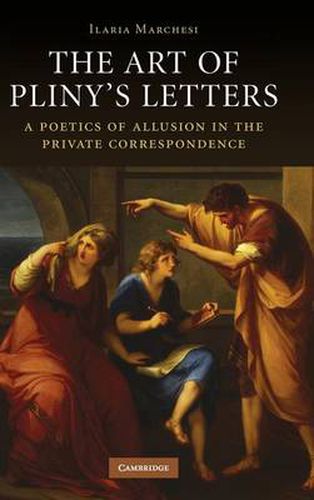Readings Newsletter
Become a Readings Member to make your shopping experience even easier.
Sign in or sign up for free!
You’re not far away from qualifying for FREE standard shipping within Australia
You’ve qualified for FREE standard shipping within Australia
The cart is loading…






In this book on intertextuality in Pliny the Younger, Professor Marchesi invites an alternative reading of Pliny’s collection of private epistles: the letters are examined as the product of an authorial strategy controlling both the rhetorical fabric of individual units and their arrangement in the collection. By inserting recognisable fragments of canonical authors into his epistles, Pliny imports into the still fluid practice of letter-writing the principles of composition and organisation that for his contemporaries characterised other writings as literature. Allusions become the occasion for a metapoetic dialogue, especially with the collection’s privileged addressee, Tacitus. An active participant in the cultural politics of his time, Pliny entrusts to the letters his views on poetry, oratory and historiography. In defining a model of epistolography alternative to Cicero’s and complementing those of Horace, Ovid and Seneca, he also successfully carves a niche for his work in the Roman literary canon.
$9.00 standard shipping within Australia
FREE standard shipping within Australia for orders over $100.00
Express & International shipping calculated at checkout
In this book on intertextuality in Pliny the Younger, Professor Marchesi invites an alternative reading of Pliny’s collection of private epistles: the letters are examined as the product of an authorial strategy controlling both the rhetorical fabric of individual units and their arrangement in the collection. By inserting recognisable fragments of canonical authors into his epistles, Pliny imports into the still fluid practice of letter-writing the principles of composition and organisation that for his contemporaries characterised other writings as literature. Allusions become the occasion for a metapoetic dialogue, especially with the collection’s privileged addressee, Tacitus. An active participant in the cultural politics of his time, Pliny entrusts to the letters his views on poetry, oratory and historiography. In defining a model of epistolography alternative to Cicero’s and complementing those of Horace, Ovid and Seneca, he also successfully carves a niche for his work in the Roman literary canon.